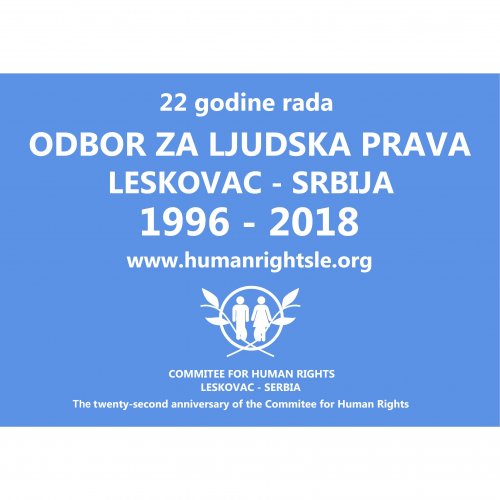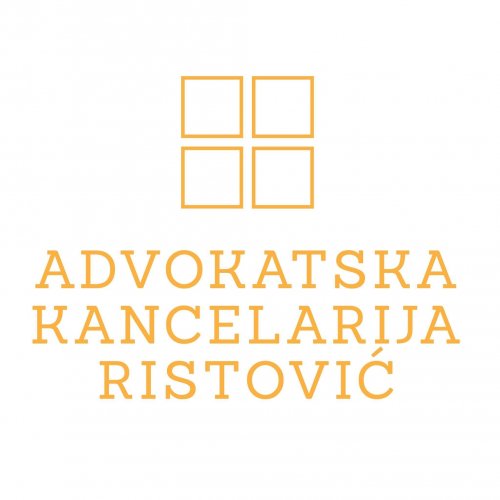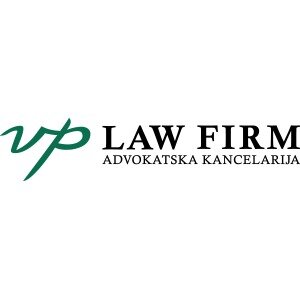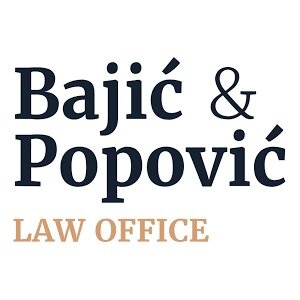Best Discrimination Lawyers in Serbia
Share your needs with us, get contacted by law firms.
Free. Takes 2 min.
Or refine your search by selecting a city:
List of the best lawyers in Serbia
About Discrimination Law in Serbia
Discrimination in Serbia, like in many other countries, is addressed through a combination of international treaties and domestic legislation. The Serbian Constitution and various laws prohibit discrimination based on race, gender, disability, religion, ethnicity, or any other personal characteristic. Key instruments such as the Law on the Prohibition of Discrimination and the Law on Gender Equality aim to protect individuals’ rights and ensure equal treatment in different areas of life, including employment, education, and public services.
Why You May Need a Lawyer
Individuals may find themselves in need of legal assistance in instances where they believe they have been discriminated against due to a personal characteristic. Common situations include being unfairly treated at work, denied access to education, or facing inequality in accessing public services. Legal support can be crucial in understanding your rights, gathering necessary evidence, and representing your case effectively in court or through mediation.
Local Laws Overview
Serbia has enacted several laws to combat discrimination. The Law on the Prohibition of Discrimination provides a comprehensive framework for addressing various forms of discrimination. It establishes the Protector of Citizens (Ombudsman) and the Commissioner for Protection of Equality as key institutions in enforcing these laws. The Labor Law also contains specific provisions addressing discrimination in employment. Additionally, the Law on Gender Equality promotes equal opportunities for men and women.
Frequently Asked Questions
What constitutes discrimination under Serbian law?
Discrimination under Serbian law includes any unjustified differentiation or unequal treatment based on personal characteristics such as race, gender, nationality, religion, or disability.
What can I do if I experience discrimination at work?
If you experience discrimination at work, you can file a complaint with your employer, seek advice from the Commissioner for Protection of Equality, or pursue legal action with the help of a lawyer.
How do Serbian laws protect against gender discrimination?
Serbian laws such as the Law on Gender Equality ensure protection against discrimination based on gender by promoting equal opportunities in employment, political participation, and other areas.
Is there a time limit for filing a discrimination complaint?
It is advised to file a discrimination complaint as soon as possible. However, specific time limits can vary depending on the nature of the case and the institution you're filing the complaint with.
Can foreign nationals living in Serbia seek protection under discrimination laws?
Yes, foreign nationals living in Serbia are protected under the same anti-discrimination laws as Serbian citizens.
What role does the Commissioner for Protection of Equality play?
The Commissioner for Protection of Equality is an independent authority that works to combat discrimination and provide recommendations, conduct investigations, and offer legal assistance.
Are there specific protections for people with disabilities?
Yes, specific provisions under Serbian law ensure that people with disabilities are not discriminated against and have equal access to public services, education, and employment.
What should I do if a public service denies me access based on my ethnicity?
If a public service denies you access based on ethnicity, you can report this to the relevant authorities, such as the Commissioner for Protection of Equality, or seek legal action with the assistance of a lawyer.
How are discrimination cases resolved in Serbia?
Discrimination cases in Serbia may be resolved through mediation, legal actions in courts, or intervention by relevant institutions like the Commissioner for Protection of Equality.
Is it possible to receive compensation for experiencing discrimination?
Yes, it is possible to receive compensation for damages incurred due to discrimination if your case is proven in court or settled with the involved parties.
Additional Resources
For those seeking further information or assistance, the following resources may be helpful:
- The Commissioner for Protection of Equality: Offers guidance, hears complaints, and promotes equality.
- Protector of Citizens (Ombudsman): Another independent body focused on protecting citizens' rights.
- Local NGOs specializing in human rights and anti-discrimination initiatives often provide support and legal advice.
- The Ministry of Human and Minority Rights and Social Dialogue: Offers valuable insights into government policies and legislation.
Next Steps
If you believe you are facing discrimination and need legal assistance, consider contacting a lawyer who specializes in discrimination law. Collect all relevant documentation and evidence related to your case. Seeking the guidance of organizations such as the Commissioner for Protection of Equality can provide initial advice or intervention. Alternatively, non-governmental organizations working in human rights can also be a valuable resource for support and advocacy.
Lawzana helps you find the best lawyers and law firms in Serbia through a curated and pre-screened list of qualified legal professionals. Our platform offers rankings and detailed profiles of attorneys and law firms, allowing you to compare based on practice areas, including Discrimination, experience, and client feedback.
Each profile includes a description of the firm's areas of practice, client reviews, team members and partners, year of establishment, spoken languages, office locations, contact information, social media presence, and any published articles or resources. Most firms on our platform speak English and are experienced in both local and international legal matters.
Get a quote from top-rated law firms in Serbia — quickly, securely, and without unnecessary hassle.
Disclaimer:
The information provided on this page is for general informational purposes only and does not constitute legal advice. While we strive to ensure the accuracy and relevance of the content, legal information may change over time, and interpretations of the law can vary. You should always consult with a qualified legal professional for advice specific to your situation.
We disclaim all liability for actions taken or not taken based on the content of this page. If you believe any information is incorrect or outdated, please contact us, and we will review and update it where appropriate.
Browse discrimination law firms by city in Serbia
Refine your search by selecting a city.














